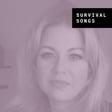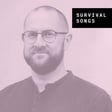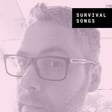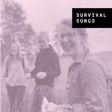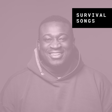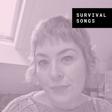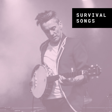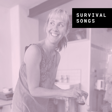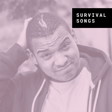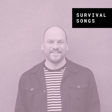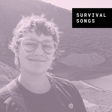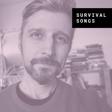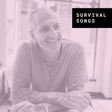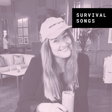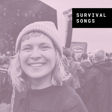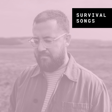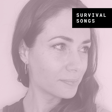
Lucy Wright: Dolly Parton 'Here You Come Again'
Warning: This episode may cause the impulse to sing like no one’s listening.
We were so chuffed to welcome the brilliant Lucy Wright to Survival Songs with her choice, Here You Come Again by Dolly Parton.
Search ‘Survival Songs’ to find episodes on all your usual podcasting platforms and add to our community playlist over on Spotify.
Lucy Wright is an artist based in Leeds, UK. Her multidisciplinary practice sits at the intersection of folklore and activism, often using as source material the large personal archive of photographs and research she has gathered over more than a decade of documenting lesser-known contemporary and female-led folk customs. Concerned primarily with inclusivity and representation in the British folk arts, she is the author of the ‘Folk is a Feminist Issue’ manifesta, and creator of ‘hedge morris dancing’—a 100% invented tradition and participatory performance project for anyone who has ever wanted to dance the sun down!
Following a stint as the lead singer in BBC Folk Award-nominated act, Pilgrims' Way, Wright received a Vice Chancellor’s scholarship from Manchester School of Art for her PhD before becoming a Visiting Research Fellow in Folklore at University of Hertfordshire in 2019. "Folk is the stuff we make, do and think for ourselves—and the radical potential of these things.” Says Lucy. "What if ‘folklore’ wasn’t just a niche interest, but a potent agent for resistance and change?"
Show notes:
Help us a grow a community of survival song listeners by joining us on over on Substack:
https://survivalsongs.substack.com/
Lucy’s website: www.lucywright.art
Instagram: @lucy_j_wright
‘Here You Come Again’ by Dolly Parton can be found on our community playlist on Spotify along with our listener’s Survival Songs. Check it out and add your own!
Find out more about Dolly Parton here.
This episode contains small portions of ’Here You Come Again’ by Dolly Parton. Survival Songs claims no copyright of this work. This is included as a form of music review and criticism and as a way to celebrate, promote and encourage the listener to seek out the artist’s work.
